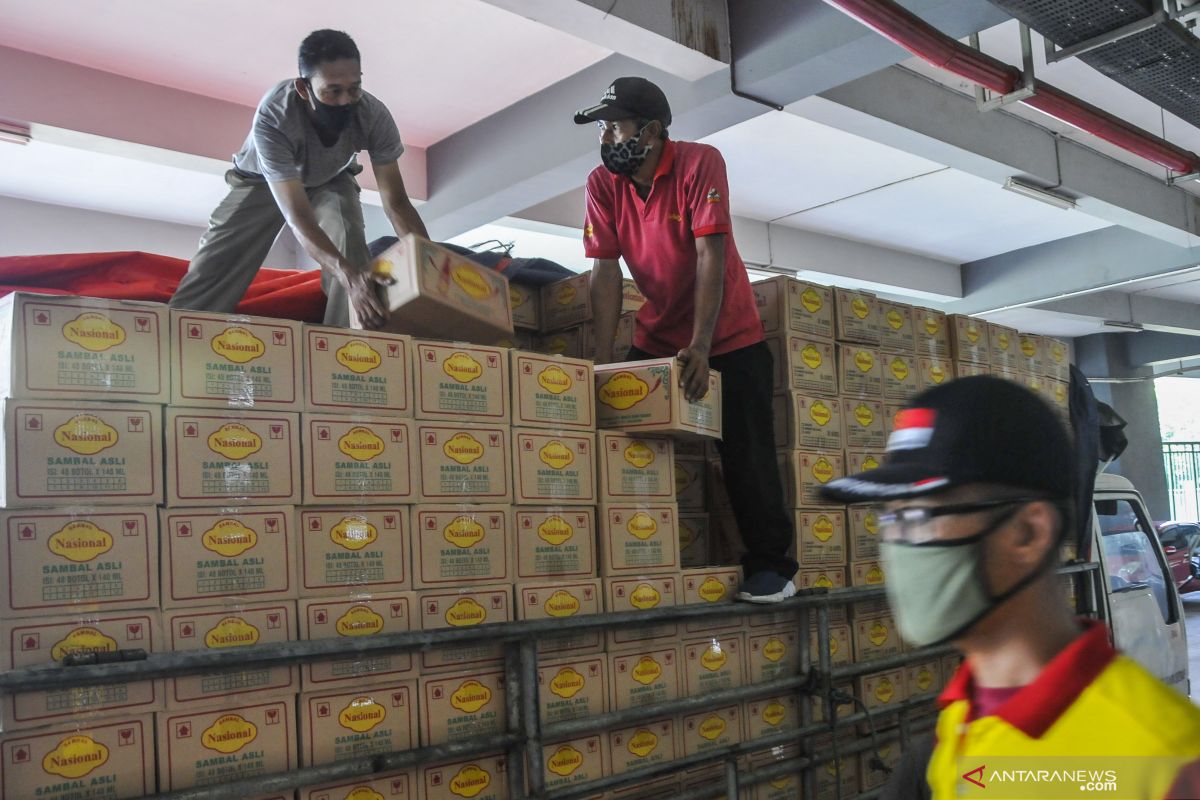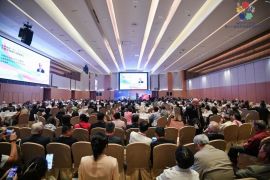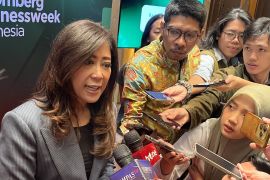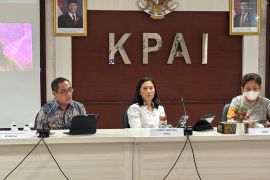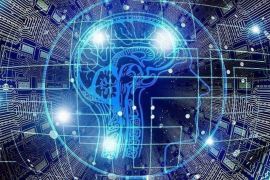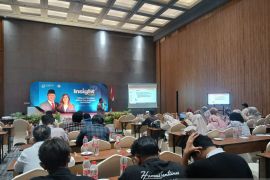**H. Sariat Arifia, Chairman of the Indonesian Toys Association, Founder of the Indonesian Jade Association, International Coach and Mentor, Business Professional, 1998 Activist of Pro-Democracy Movement
In 1997, Indonesia was hit by a monetary crisis. The World Bank and IMF diagnosed and gave a hand to Indonesia, based on a textbook-oriented approach and assumption that one tablet of medication could be applied to all the countries facing the same problems. The World Bank and IMF also under estimated the psychological, political and many other factors involved. As a result of that approach, Indonesia's monetary crisis fully became the economic and political crises which plunged the country into a serious instability, and, at the end, resulted in the resignation of President Soeharto.
At that time, media and politicians thought that it was for best. All were happy because those from the media finally got their press freedom, and the politicians also enjoyed to express themselves and ideas. Only later on, we understand that the costs for all of these are extremely high. In 1999 and onward few years later, the largest portion of state budget is devoted to the repayment of debt servicing. And, this debt continuously gets increasing and remains high until today. Yet, media and politicians have no sufficient attentions to such this important issue.
As a conclusion, Eric Toussaint, in his article about the interference of the World Bank and IMF, stated that Indonesia's debt shows a totally negative result in the matter of human development. With debts that have been multiplied from 1970 up to 2000s, Indonesia's external public debts have increased twenty-fold. The debt system in Indonesia, which is silently used and has never been explained to public, confirms a fatal mechanism, for extracting the country's wealth.
When the 2008 financial crisis began to crumble US financial system, key figures who felt the calls for an immediate response are, amongst other, Hank Paulson (Secretary of Treasury under George Bush's administration), Ben Bernanke (Chairman of US Federal Reserve Bank) and Tim Geithner (President of NY Federal Reserve Bank and Treasury Secretary under Barack Obama's Administration).
They were deeply concerned with the systemic risks of the calamity to the US and global economies. The US economy was in significant risks of falling into deep recession, even depression. Since the scale and depth of the crisis was considerably massive, bold response became imperative.
The crisis was initially triggered by significant decrease of the underlying asset pools of collateralized debt instruments issued by banks and held by wide variety of investors.
The assets literally became troubled. Paulson, Bernanke and Geithner thought that bailing out needed to be taken immediately. However, the road towards recovery was proved to be long and winding.
The history of recovery process of the 2008's sub-prime mortgage crisis implied huge non-technical costs or non-hazardous risks. Though the TARP (Troubled Asset Recovery Program) is a technical success, Paulson, Bernanke and Geithner have to dire reality of dealing with "lethal" combination between economy, public outrage, and intricate politics.
The economic consideration has to be confronted with harsh reality of public outrage and political dynamics. The social or psychological costs are long and deep. They can even be felt long after the crisis. At present, the US may still have to experience the widening polarization that may hamper its ability to deal with the crisis in effective and robust ways.
The new coronavirus pandemic that Indonesia has been facing may have been indicating quite similar perplexities from the beginning. In Indonesia (at least from the context of writing this article), the crisis has been shifted from what Fink's crisis management model as prodromal stage to acute and chronic stage.
At the beginning of the crisis (prodromal or pre-crisis stage), people may usually be in denial or shock mode. Never before, we, (either at personal, organizational and government levels), experience such intangible and hard to identify "enemy" like this.
As the crisis began to mount and speedily approaching, both mainstream media and social media platforms as well as several political actors start to exploit the psychological and hysterical sides of the crisis.
People at large begin feeling anxious. Some of them are in denial. Several others are doing confabulation (filling the missing or uncertain parts of the crisis with their own imagination and explanations).
Some are using psychological immune system through rationalization, religious explanations, nationalistic jargons (saying that it cannot occur in Indonesia) and self-righteous arguments (we eat herbs, we are in the equator).
These conditions actually signify fogs in the thinking process. Individually and collectively, emotion is taking over predominant parts of decision making and executive functions. The public at large may have missed the logical foundation behind the calamity: be focused, be prepared, and act properly and strategically.
In the meantime, the media and politicians may have look and, therefore, act in different ways. This is indeed an opportunity. When people are anxious, this is the time to sell (bad news), to provoke (distrust) and inflict certain agendas.
When people feel uncertain, anxious and discomfort, they seek channels to fill the gap and place of comfort. In this matter, if delivered with convincing narratives, bad or unproven news or information can be enough.
In the time of danger, actual facts may have come secondly. The utmost importance is how to deal with the threats as immediately as possible. It is like when we are in the forest. Knowing that there are wild animals lurking is enough. We do not need to know where (the actual distance), how many, and what exactly are their motives.
Within the acute and chronic stage, where there is no point of return, people's anxiety may grow to an outrage or anger which include blame-game or distrust. Emotion and emotional sentiment, though they tend to be soft and subtle, are vastly contagious.
By stirring up the fuel, media and politicians are working hand in hand in inflaming public outrages. When the outrages are taking over; logic, reflection, and reason are in the sideways.
When people cannot optimally engage in reasonable and strategic perspectives, they are more prone to demonstrate panic behaviour. The COVID-19 handling in Indonesia has been encircled and spiced-up by unnecessary politicking debates and disputes with less or minimum substances.
The primary concern becomes more about political and vested grounds rather than substances. Critical strategic responses are easily drowned into political hysteria and postures.
Dealing with the crisis is becoming the public relations (PR) and power struggle stages of who amongst the actors that are having the most decisive, most caring, most provoking and most appealing attributes to public sentiment.
As time goes by, the media and politicians fail to understand when the substantial performance is needed to reveal and deliver such things as identifying the number of absolutely high-risk people in red zones of the coronavirus pandemic and in urban cities; and then managing the data result by I.T. By doing so, we can concentrate more on the high-risk groups to be monitored closely; and can also provide good ratio between lab test and the availability of hospital bed and ventilators, protective personal equipment (APD), and rapit test kits. These are the things that need to put everyday in big display. It is not about how many people who die. Instead, it is about how many people that can be prevented from dying.
Yet, instead of serving their readers and audience with insightful news and information on these coronavirus-related issues, the media themselves seem to enjoy the moments by tending to make them more dramatic. The bad and horrific news remain misperceived as "good news" that may give more readers. It does not matter how many people survive and how many people get cured. They will not receive sufficient coverages, and, if they are covered, they are put on last column to read.
The politicians also remain the same. They tend to enjoy the images of providing aid packages for the poor on the streets, a moment that is regarded as good for a video footage. Perhaps, they may also pledge to give a help in near future.
The media and politicians won't see that the unity in such economies that have relatively succeeded in handling the pandemic as China, Taiwan, Singapore, and Vietnam, is very good. They can put aside the differences, and concentrate on whatever necessary measures that they need to perform and do.
What may also not be seen in the pictures by the media and politicians is the negative impact of the World Health Organization's recommendation to Indonesia. Indonesia has to raise its debt to support the WHO's policy. And, of course, WHO will not pay the bill, but the grandchildren of Indonesian people have to pay the bill. The coronavirus-related coverages, at the moment, may still emphasize on the pandemic, but not sufficiently on the financial catastrophe that may likely occur.
What we have done so far as a nation with lots of efforts will be evaporated quickly and significantly just by merely surrendering ourselves to our short-sighted agendas. Our media and politicians need to think strategically and get rid of mistakes that might have been made in the past. Otherwise, our grandchildren will spit on our graveyards for the costs they have to bear due to our inability to make our decisions accountable in front of our own grandchildren.
The views and opinions expressed on this page are those of the authors and do not necessarily reflect the official policy or position of ANTARA News Agency.
Related news: Indonesian media urged to provide credible information on COVID-19
Related news: Reporting on COVID-19: Journalists torn between caution, duty
Copyright © ANTARA 2020
